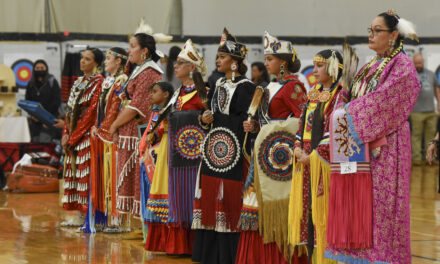Keilah Davis | Staff Writer
Imagine a holiday season without turkey, green bean casserole, and a Christmas tree. For many Americans, these elements are holiday essentials. For others, holiday foods and traditions that to many might seem unconventional are the norm.
“Usually we just spend time with a lot of family and you eat a lot of fried food,” Kruti Patel, a sophomore studying nutrition, said.
“We don’t celebrate Thanksgiving in France but my family does because my dad is from here so he grew up celebrating it,” Max Ganch, a sophomore studying graphic design, said.
Patel and Ganch experienced “non-traditional” holidays from two very different perspectives. Ganch’s mother is French and his father is American. He grew up experiencing U.S. holidays with a mixed set of traditions. “It was really like a melting pot,” Ganch said. “We blended the two a whole lot.”
Ganch recalled baking thumbprint sugar cookies with his father, who made them with his own family as a kid. Ganch also experienced Christmas in France with his mother’s family.
“Food is really important in French culture,” Ganch said. “In France, oysters, champagne, foie gras, and beef wellington are Christmas staples.”
In addition to these foods, candied fruits are also a major treat that Ganch’s family enjoys during the holiday season.
“Candied fruit is something we spend the day doing on Christmas Eve,” Ganch said. “I remember the last time we went to France for Christmas, my sister and I spent the day taking dates, pitting them, rolling them in sugar, and putting a filling on top.”
Even while celebrating Christmas in the U.S., Ganch’s family traditions emphasized Christmas Eve.
“In America, most people do Christmas gifts on Christmas morning,” Ganch said. “Kids wake up their parents and they all do it in the morning. We always grew up opening all of our gifts on Christmas Eve.”
Patel is Hindu and her family is from Gujarat, a northwest state in India. Many Hindu holidays fall during the academic year instead of scheduled breaks. Thus, fully celebrating them requires missing valuable class time.
“These holidays aren’t just one day,” Patel said. “There are Christmas-level holidays with the amount of family you see, the amount of cooking you do, and the amount of tradition. In India, we have a month off for Diwali and here we have a month off for Christmas. It’s actually kind of annoying.”
For Patel, “the holidays” refers almost exclusively to religious and cultural holidays, not traditional U.S. holidays.
“If we didn’t have days off for these [U.S.] holidays, my family wouldn’t really care,” Patel said. “We just have so many holidays to keep up with.”
In the Hindu calendar, Navratri, a ten-day festival dedicated to worship of the Hindu deity Durga, and Diwali, a festival of lights, come back-to-back in the fall.
“Diwali usually comes before Halloween. We’ll put up Christmas lights–string lights–and we’ll keep them up until after Christmas,” Patel said.
While Patel’s family doesn’t celebrate Christmas for religious reasons, her family still gathers around that time and often exchanges gifts.
“Our reunions tend to happen around Christmas time and then it feels like we’re celebrating Christmas but we’re not,” Patel said. “But since we’re together, we’ll do a secret Santa or white elephant.”
With holiday season approaching, it’s important to know that not everyone celebrates “the holidays” in the same way.



